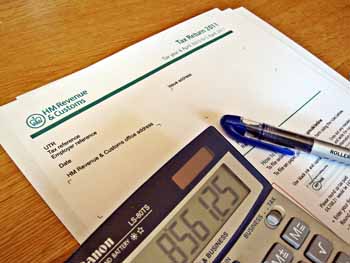What is the liability of committee members when the company is not incorporated?
This guidance from the National Golf Clubs’ Advisory Association (NGCAA) explores issues such as debt, loans and mortgages and asks what is the liability of committee members when the company is not incorporated.
When starting a golf club or any business it is important to consider what legal form it will take.
A club can be run in either an incorporated form (company) or unincorporated. The form that the club takes will dictate the practices for how it operates and, importantly, it will affect the liability of those persons who run it.
An unincorporated business requires few administrative steps to be formed under the law, compared to incorporated companies that must be formally registered before they exist as a legal entity. Given the extra steps involved, you may wonder why anyone would want to incorporate a company and undergo the registration process. To better understand the reasoning, it is useful to consider the two forms of entity and the differences between them.

There is no statutory definition for an unincorporated association, but a number of definitions appear within case law. According to this, an unincorporated business is an organisation set up by an individual (who could then employ a number of people) or, according to Lord Justice Lawton in the case of Conservative and Unionist Central Office v Burrell, “two or more persons bound together for common purposes … by mutual undertakings, each having mutual duties and obligations, in an organisation which has rules identifying the persons in whom control of it and its funds rests and upon what terms, and which can be joined or left at will,” for example, a voluntary group or a sports club.
Typical forms of unincorporated businesses are sole traders and partnerships. As previously mentioned, you don’t need to register an unincorporated association, and it doesn’t cost anything to set one up. Given how easy these are to set up, it is evident why they are so popular when a club is just starting out.
One massive distinction between the two forms of organisation is that, when running an unincorporated business, the individual members are personally responsible for any debts and contractual obligations.
Individual members of committees can also be held jointly and severally liable for contracts entered into on behalf of the association should the association permit them so to do. This potential liability is something that many members and particularly committee members are unaware of.
This means that should the club fail to keep up mortgage repayments on properties or the club enters into a contract with another company which it cannot pay, the individual who agreed to these will be liable to settle this from their own funds. Should the individual be unable to do this, then they may then face bankruptcy proceedings. As can be appreciated, running a business in this way is a great responsibility.
Another key point to consider about an unincorporated association is that it is governed by rules created by its members forming a contract between them. There is no legal requirement to have these rules written down and so this could lead to disputes between members going forward.
Despite these issues, quite often an organisation with a small number of members will start off as an unincorporated association because this is the easiest structure to set up and simple to run. As time goes on and membership grows, dealings with other institutions will no doubt become more complex and lack of incorporation may cause issues in business dealings going forward, that is an unwillingness by members to agree to high profile deals for fear that they will be held personally liable if something went wrong. This may drive members to adopt a more regulated form of company and see to incorporation to take advantage of numerous benefits including the separate legal identity inherent with incorporation. Importantly this also affords protection to committee members in terms of liability.

As stated, on incorporation, a company becomes a legal entity separate and distinct from its shareholders. It is not the agent of those shareholders, not even if it is a one-man company with one shareholder controlling all of its activities. This fundamental principle of company law was established by the House of Lords in 1897 in the case of Salomon v Salomon & Co Ltd. This means that the law recognises the company as a legal person which has its own rights and obligations.
The typical rights that a company / organisation obtains when incorporated include the ability to own property in its name, enter into contracts, apply for loans and even sue individuals for breach of company contracts. When setting up a company it is a requirement that formal rules for running are established to prevent dispute, and to make clear the obligations of its members.
Incorporation also means that the shareholders or members of the company will have limited liability in relation to debts. Being a separate legal person, the company will be able to incur debts in its own name, meaning if the company cannot settle these debts then the creditors owed money must take action against the company and not its members or directors. The members or directors do not have any direct liability for debts of the company which incurred them unless there is a question of negligence or a director breaching their responsibilities imposed by statute. As such, creditors cannot sue the individual members to pay off the debts or seize their own personal assets.
A limited company may limit the liability of its member in one of two ways; either by shares or guarantee. Where a company is limited by shares, ownership and control lies with the shareholders. Usually a company not looking to make a profit, such as golf clubs, choose to limit by guarantee. In this instance the members guarantee, in the event the company is wound up, that they will pay a specific sum to creditors. The liability can be limited to any sum that the club wishes (usually a nominal amount such as £5 per member), making the company more appealing to prospective members.
There is a legal process involved in changing the form of ownership for existing clubs which are not incorporated. This process involves making an application to Company’s House, establishing articles of association which sometimes need to be bespoke rather than standard, preparation of company accounts as well as other necessary formalities and procedures required by law.
Despite the formalities there are clearly numerous advantages to incorporating your club which will protect its members, making it worthwhile in the long-term. If you wish to discuss the incorporation process further or are looking for legal advice to make the transition, please contact NGCAA for further advice.
The NGCAA provides support, advice and guidance – from start to resolution – on all legal matters impacting upon both proprietary and private members’ golf clubs.

Alistair Smith, the chief executive, is based in the office and is on-hand to offer advice and support.
The National Golf Clubs’ Advisory Association (NGCAA)
The Threshing Barn, Homme Castle Barns,
Shelsley Walsh, Worcestershire, WR6 6RR
Tel: 01886 812943
email info@ngcaa.co.uk















Do you know of any golf club that closed , had their committee held to account. I am on my club’s committee and we are thinking of becoming a charity.
England Golf have produced two documents as policies for adoption by all their clubs Safeguarding Adults and Safeguarding Children and Young People. We are an association solely of adults that play at the Public Richmond Golf Course run by Glendale for the local authority. We have a committee of members for the ladies and men with no paid staff. Meeting once/twice a week at the course We are advised that England Golf require us to adopt both policies in order to retain our accreditation. Yet the second policy is specifically for those clubs working with Children and Young People. Have you any advice how we should respond. My inclination is not to adopt the policy, but we wish to retain the accreditation I have sent e-mails to the EG representative, but concerned only at overloading you with information although happy to send